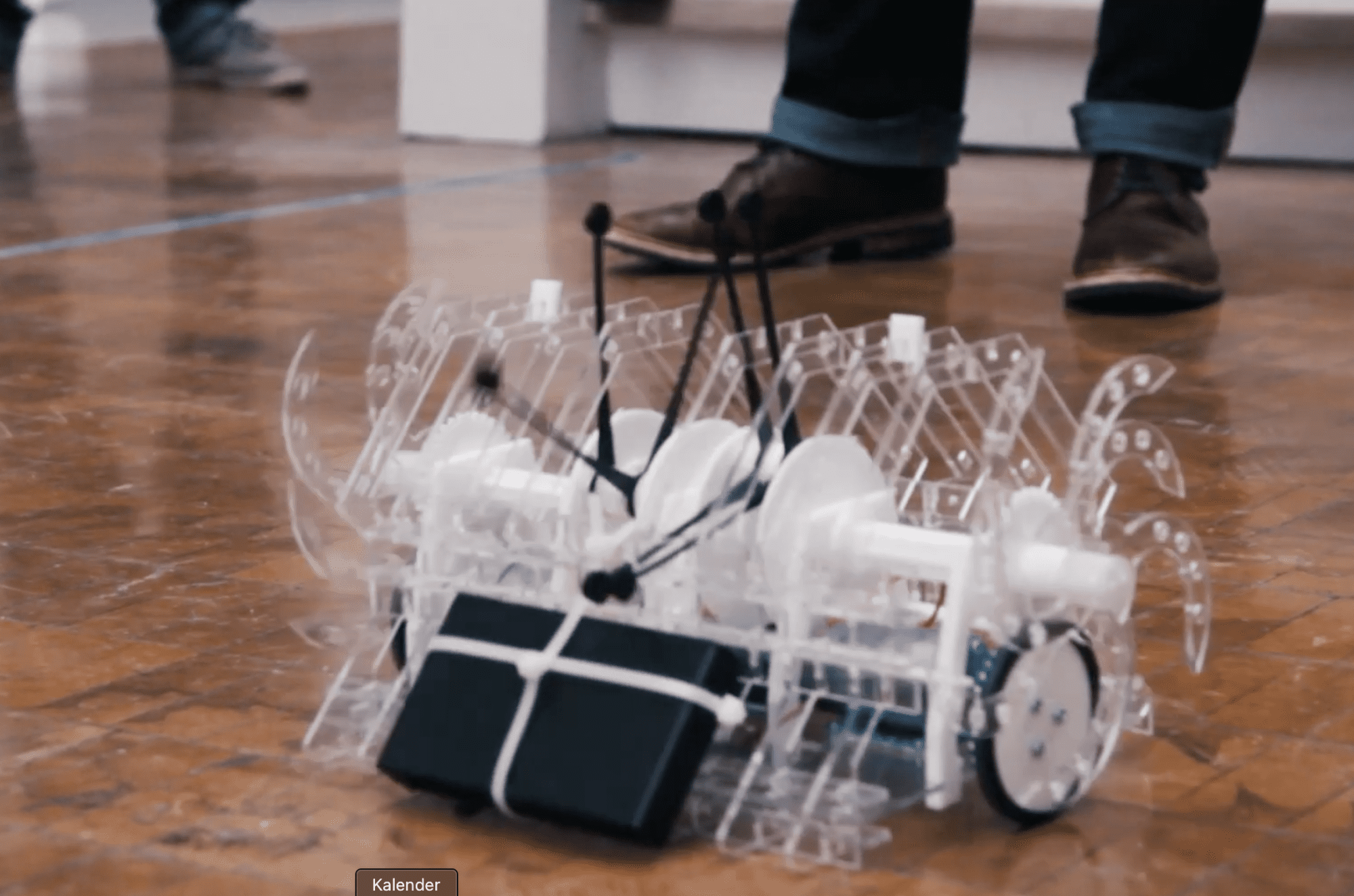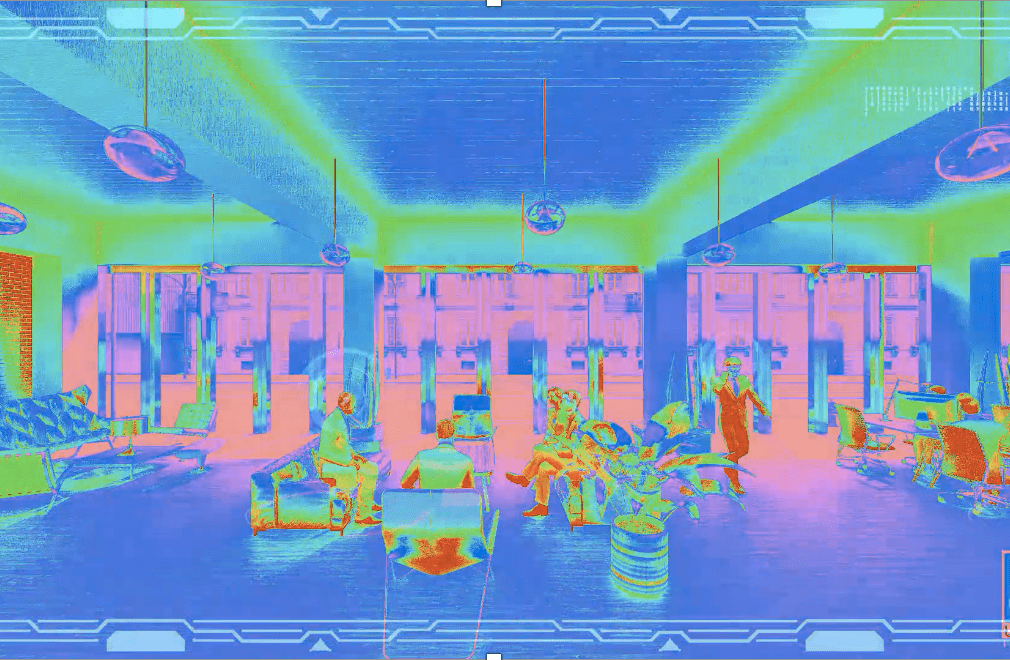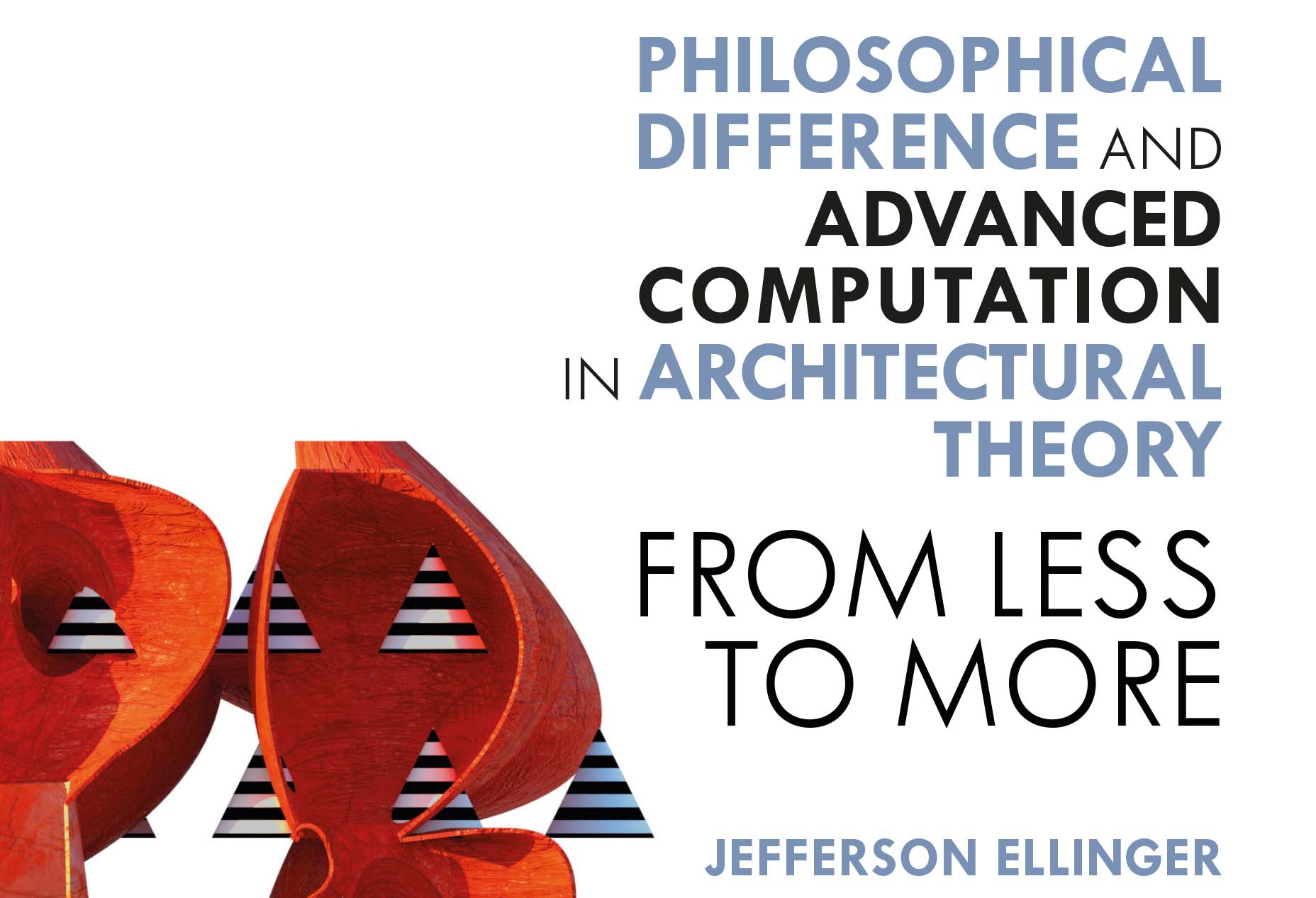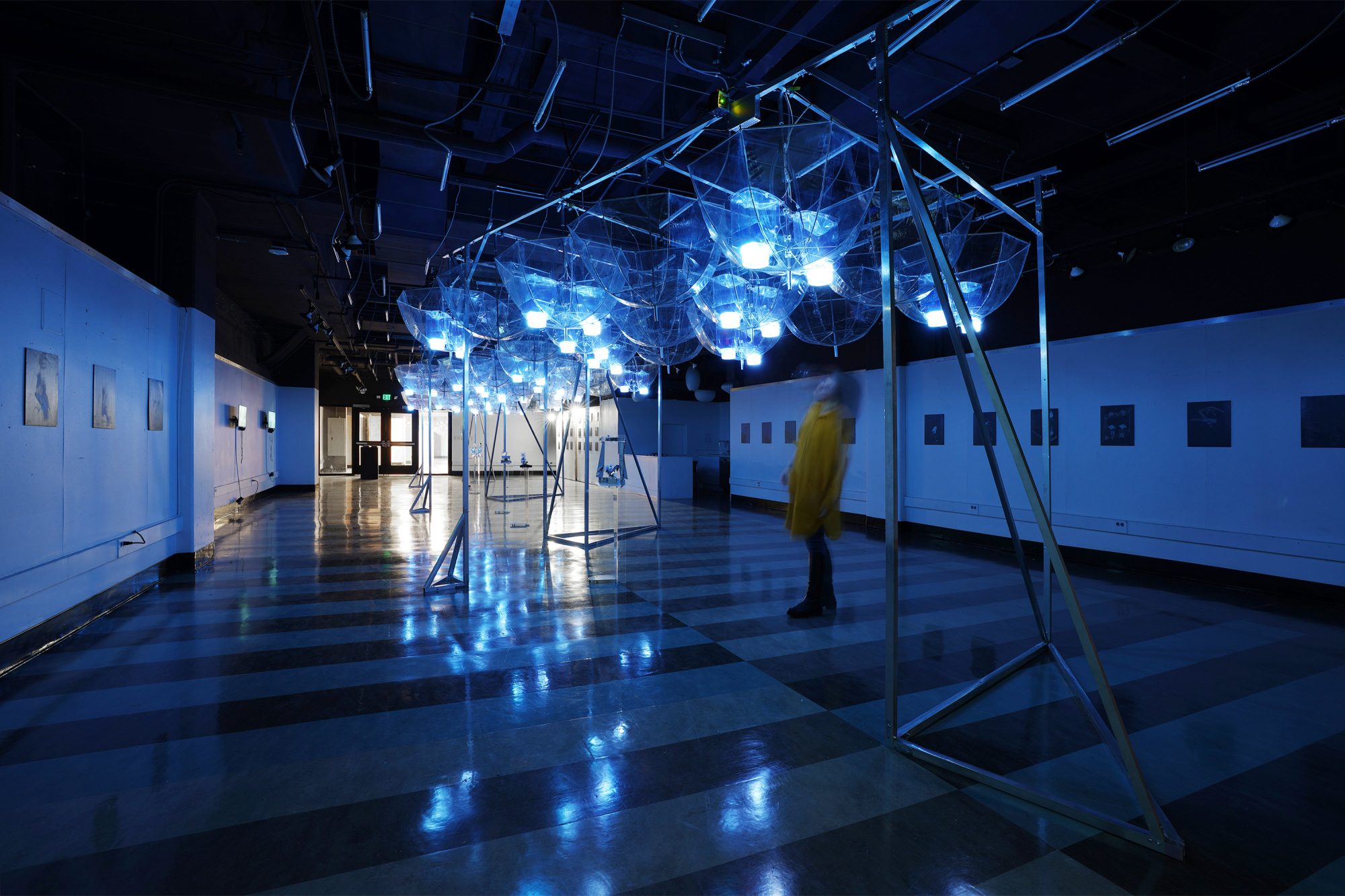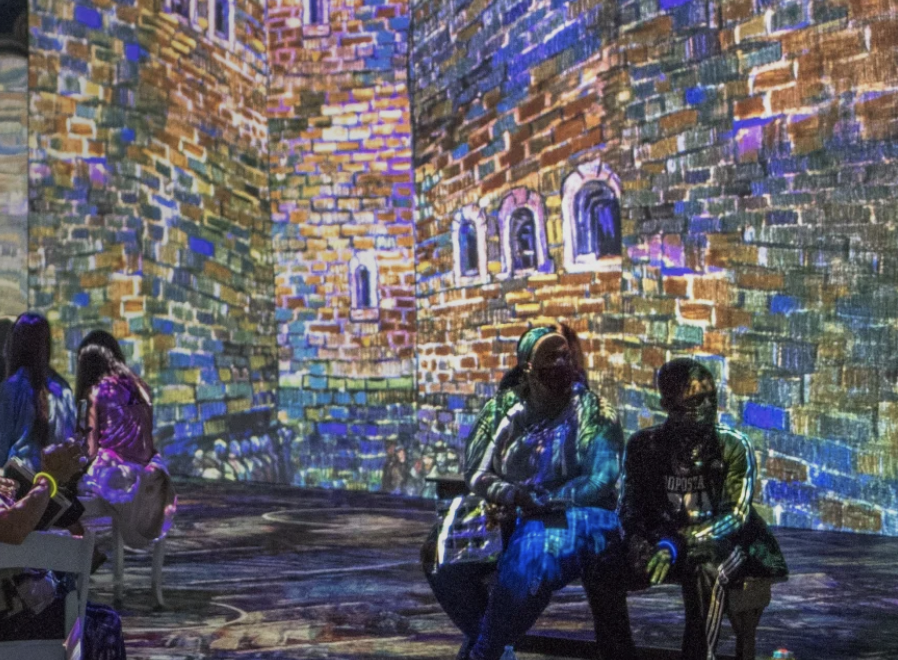The Computed Environment

The Computed Environment considers the relationship between atoms and bits at all scales, developing design and experiential opportunities at the intersection of AR, VR, AI, IoT, and robotics. The work of the College’s Digital Arts Center (D+Arts) explores the possibilities of responsive environments, digital fabrication, and multidisciplinary performance. Courses in Computational Methods, Computational Practice, and Robotics provide meaningful forays into this area for students. In addition, the M.S. in Architecture—Design Computation degree, with dual degree options in Computer Science and Information Technology, provides an opportunity to gain advanced expertise in this area.
Computed Environment | EXAMPLES
Robot Runway Show
At the School of Architecture the Computational Methods class lead by Rachel Dickey heats up their final presentations with a robot catwalk and dance-off.
Read more →
Social Media – Contemporary City
Eric Sauda’s recent publication focuses on the effects of social media on local communities and urban space in a variety of political and economic settings related to social activism, informal economic activity, public art, and global extremism.
Read more →
AI Thermal Comfort Imaging
The project by Mona Azarbayjani is a contactless non-intrusive data collection approach for the creation of healthy energy saving built-environment. The research will investigate collecting thermal condition data directly from the occupants in a completely non-intrusive approach through the integration of thermal and RGB cameras.
Read more →
Philosophical Difference
Jefferson Ellinger’s book “Philosophical Difference and Advanced Computation in Architectural Theory – From Less to More” (2021) presents a new take on the evolution of digital design theories in architecture from modernity to today, as they have been inspired both by contemporary philosophy and the emergence and access to advanced computation.
Read more →
Moving Air (2020)
Catty Zhang’s exhibition features multimedia investigations utilizing airflow as a material freely available in the environment. Developed at the convergence of computation, natural physics and architecture, “The Moving Air” attempts to explore the cultural, social, and environmental uptakes of technological investigations of ephemeral and invisible factors that create emotional impacts.
Read more →
Investment in Digital Engagement
A $1.2 million investment in several digital engagement initiatives, supporting Ming-Chung Lee in his research, is helping connect the people of Charlotte and build a more inclusive community. In an increasingly connected world, technology can serve as an effective tool to strengthen civic engagement.
Read more →
